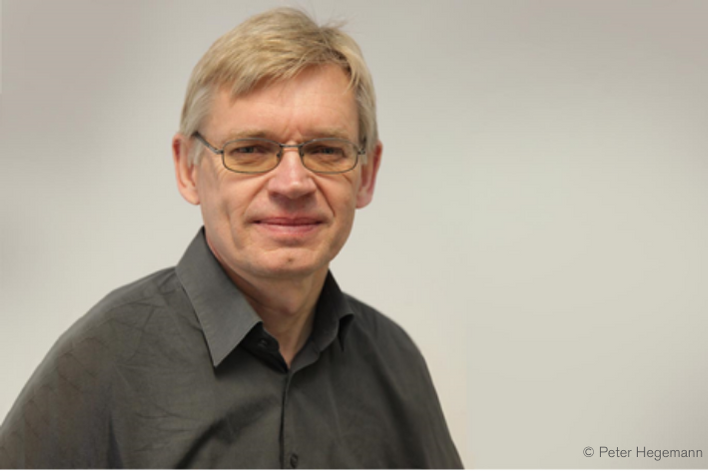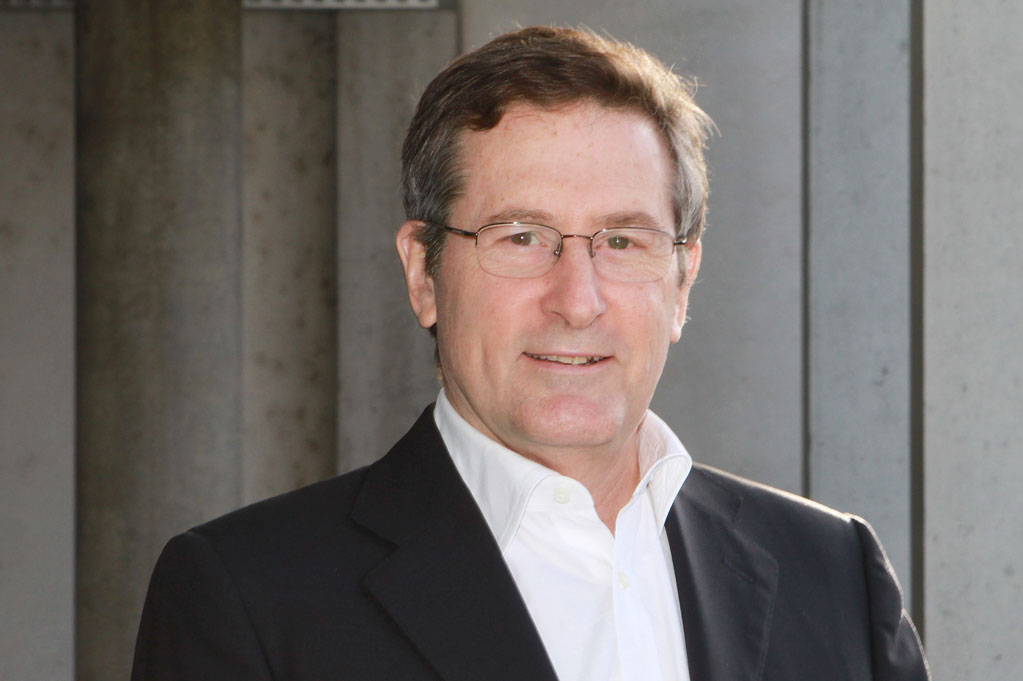The Lasker Awards have been awarded annually since 1945 to living persons who have made major contributions to medical science or who have performed public service on behalf of medicine. They are administered by the Lasker Foundation, which was founded by Albert Lasker and his wife Mary Woodard Lasker. Lasker Award winners receive $250,000 per category.
ERC grantees Lasker laureates
Peter Hegemann - Lasker Award for Basic Medical Research, 2021

He was awarded the Lasker Award for the discovery of light-sensitive microbial proteins that can activate or silence individual brain cells and for their use in developing optogenetics—a revolutionary technique for neuroscience.
- Read bio Peter Hegemann
-
Peter Hegemann, born 11 December 1954, is a German neuroscientist known for his discovery of channelrhodopsin, a type of ion channels regulated by light, thereby serving as a light sensor.
Hegemann completed his PhD at the Max Planck Institute of Biochemistry in 1984, then went to Syracuse University in 1985 as a postdoctoral fellow in Kenneth W. Foster's lab for a year. After returning to Germany, he was offered a five-year position as a principal investigator at the Max Planck Institute of Biochemistry. In 1993, Hegemann joined the Department of Biochemistry of the University of Regensburg as a professor. He moved to the Humboldt University of Berlin in 2004 and became a Professor of Experimental Biophysics. In 2015, he was endowed with a Hertie Senior Research Chair for Neurosciences.
Michael N. Hall - Lasker Award for Basic Medical Research Award, 2017

He was awarded the Lasker Award for discoveries concerning the nutrient-activated TOR proteins and their central role in the metabolic control of cell growth.
- Read bio Michael N. Hall
-
Hall obtained his PhD from Harvard University in 1981. He was then a research fellow at the Pasteur Institute in Paris for eight months before joining Ira Herskowitz's group at the University of California, San Francisco as a postdoctoral fellow. He became a principal investigator at UCSF in 1984, leading his own research group. In 1987, Hall moved to Basel, Switzerland, where he joined the Biozentrum of the University of Basel, as an assistant professor. He was promoted to professor in 1992. Hall was twice appointed Vice Director of the Biozentrum, from 2002 to 2009 and again from 2013 to 2016. He was also Chairman of the European Molecular Biology Organization Council between 2021 and 2022, and served on the Council from 2017 to 2019 and again from 2020 to 2022. Currently, Hall serves on the Board of Trustees of the Louis-Jeantet Foundation. In 2023, he established a second research group in Basel, at the Institute of Human Biology of the pharmaceutical company Roche.
Peter J. Ratcliffe - Lasker Award for Basic Medical Research Award, 2016

In 2016 he was awarded the Lasker Award for the discovery of the pathway by which cells from humans and most animals sense and adapt to changes in oxygen availability – a process essential for survival.
- Read bio Peter John Ratcliffe
-
Sir Peter John Ratcliffe, born 14 May 1954, is best known for his work on cellular reactions to hypoxia.
Ratcliffe won an open scholarship to Gonville and Caius College, University of Cambridge in 1972 to study Medicine and then completed his MB ChB medical degree with distinction at St. Bartholomew's Hospital in 1978. He then trained in renal medicine at the University of Oxford, focusing on renal oxygenation. He earned a higher MD degree from University of Cambridge in 1987. In 1989, Ratcliffe established a laboratory at the University of Oxford’s Nuffield Department of Medicine to explore the regulation of erythropoietin (EPO), a hormone released by the kidneys and responsible for stimulating the production of red blood cells. In 1990, he received a Wellcome Trust Senior Fellowship to study cellular responses to hypoxia. From 1992 to 2004 he was senior research fellow in clinical medicine at Jesus College, Oxford. In 2002, Ratcliffe was elected to the Academy of Medical Sciences and to the Royal Society. He was appointed Nuffield Professor and Head of the Nuffield Department of Clinical Medicine at Oxford in 2004. In 2016 he was appointed Director of Clinical Research at the Francis Crick Institute, retaining a position as member, now Distinguished Scholar, of the Ludwig Institute for Cancer Research, Oxford.
Lasker Award for Basic Medical Research Award, 2008
.jpg)
In 2008 Baulcombe won the Lasker Award “for discoveries that revealed an unanticipated world of tiny RNAs that regulate gene function in plants and animals.”
- Read bio Charles Baulcombe
-
David Charles Baulcombe, born 1952, is a British plant scientist and geneticist. Baulcombe did his studies at the University of Edinburgh, where he received his Doctor of Philosophy degree in 1977 for research on Messenger RNA in vascular plants supervised by John Ingle. After his PhD, Baulcombe was a postdoctoral fellow at McGill University (Montreal, Quebec, Canada) and the University of Georgia (Athens, Georgia, United States). In December 1980 Baulcombe started his career as an independent scientist at the Plant Breeding Institute (PBI) in Cambridge UK. He joined the Sainsbury Laboratory in Norwich from 1988 as a senior research scientist and was also Professor at the University of East Anglia since 2002. Since 2007 he has been the Regius Professor of Botany at the University of Cambridge (Emeritus since 2019).
In 2010 Baulcombe won the Wolf Prize in Agriculture: “Sir David Baulcombe’s pioneering discovery of gene regulation by small inhibitory RNA molecules in plants is of profound importance, not only for agriculture, but also for biology as a whole, including the field of medicine”.
He has also received the Gruber Genetics Prize (2014), the Balzan Prize (2012) (for epigenetics) (Balzan Foundation, Rome) and the Albert Lasker Award for Basic Medical Research (2008) Lasker Foundation (shared with Ambros and Ruvkun)




